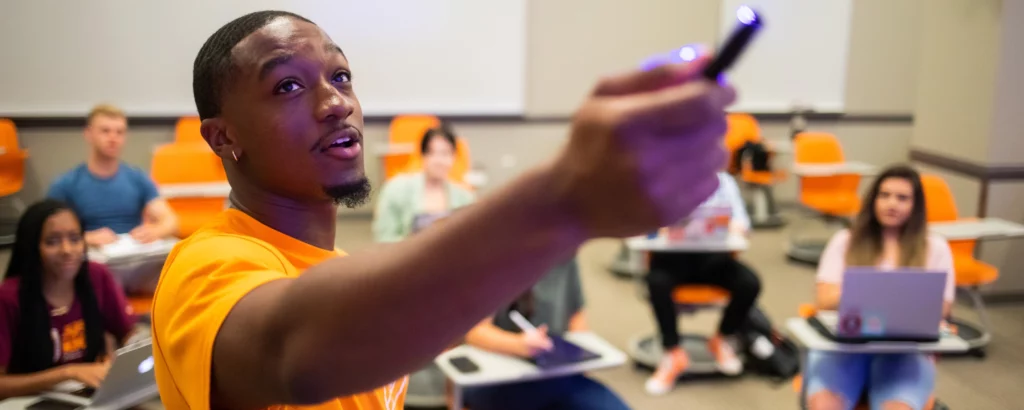Stations Toward the PhD
The curriculum consists of a few general core courses and a series of more specialized classes that are selected to fit the individual interests of the student. The main goal of the coursework is to provide a theoretical framework upon which the student’s research will be conducted. Incoming students do not have to identify a thesis advisor before coming to UT. Instead, they select a lab after three lab rotations at the end of their first year.
First Year
Research: Three lab rotations (BCMB 516) of seven weeks each during the fall and spring semesters allow students to familiarize themselves with different experimental approaches. At the end of the rotation period, students identify a suitable home laboratory before the summer semester.
Courses: Students take three core courses: Advanced Protein Chemistry & Cellular Biology (BCMB 511) and Experimental Techniques I (BCMB 515) in the fall; and Advanced Molecular Biology (BCMB512) in the spring. Each semester, and continuing throughout the entire period of residence, students enroll in one of the many journal clubs offered by the department as well as the departmental seminar (BCMB 601) and graduate research colloquium (BCMB 603).
Second Year
Research: Students settle into a research project in their home laboratory. They form a research advisory committee of four to five faculty members. The committee meets once a year to review progress.
Courses: Students enroll in courses tailored to their individual needs; for example Cell Biology (BCMB 513), Plant Biology (BCMB 522 and 523), Experimental Design & Grant Writing (BCMB 530), journal clubs, and many more.
Third Year and Beyond
A major way station toward the PhD is the comprehensive exam. Most students complete it during their third year. The exam tests the student’s general knowledge, ability to think deeply about a research problem, synthesize material, and plan a research project. After passing the comprehensive exam, students continue to gather speed in their research. Most students defend their thesis by the end of their fifth year.
